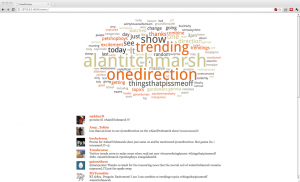Unexpected
So I mentioned something about keeping busy? Yeah, well…
A while back I spent a couple of months playing around with an idea that we thought could make an interesting bit of research. It started with a simple modification to a protocol proposed by someone else (Gavidia et al, A gossip-based distributed news service for wireless mesh networks), where we added some elements of self-adaptation and cooperation. As things sometimes go, the results were quite good but not outstanding and we had more pressing things to look at, so we dropped it and moved onto something else.
It’s never nice to just drop work and not get anything from it though, so we wrote a technical report about the work we’d completed that we could stick in a deliverable somewhere. At the same time, we noticed a conference workshop where a paper on the work might fit, and decided it might be an idea to trim the report down for submission. Unfortunately, at that point things kicked off with a couple of journal papers that we’d been working on at the same time so we didn’t have time to do the submission.
Fast forward to the SocialNets/Recognition meeting in mid February and we learn that the deadline for the workshop was extended. On the spur of the moment we decided to have a bash at a paper for it. We cut the tech report down, gave it an edit, and submitted it. Fast forward again to this week and we get the notification through that the paper has been accepted. Previously we had a bit of work that would never see the light of day, buried at the back of an EU deliverable. Now for very little effort we have a published bit of work, I’ve got another publication to add to the list, and a trip to a conference as well. In Italy. In June. Sometimes life is just too cruel 😃
